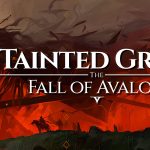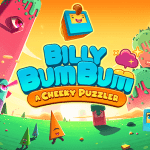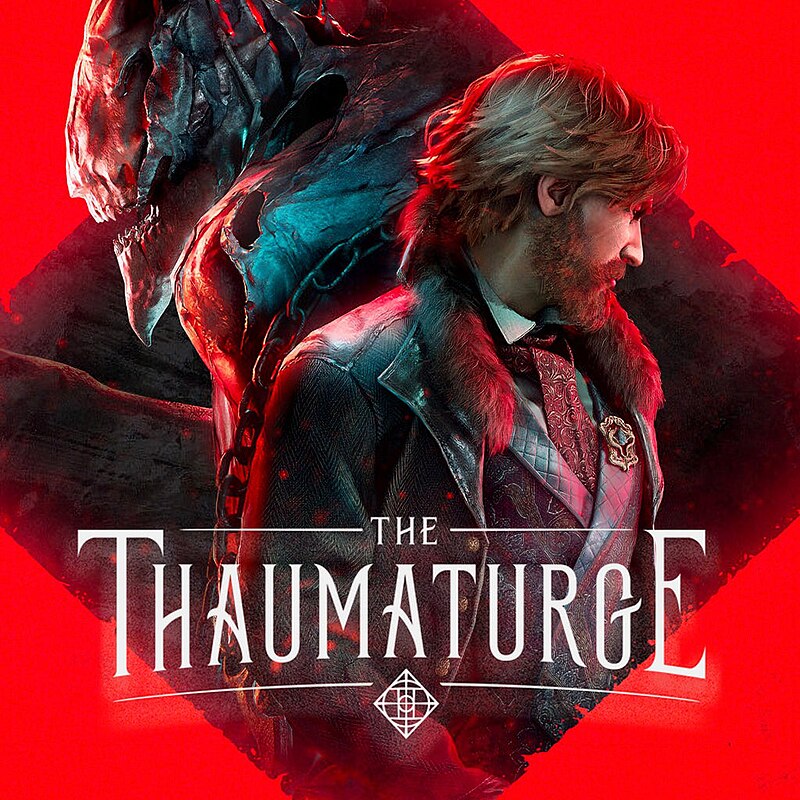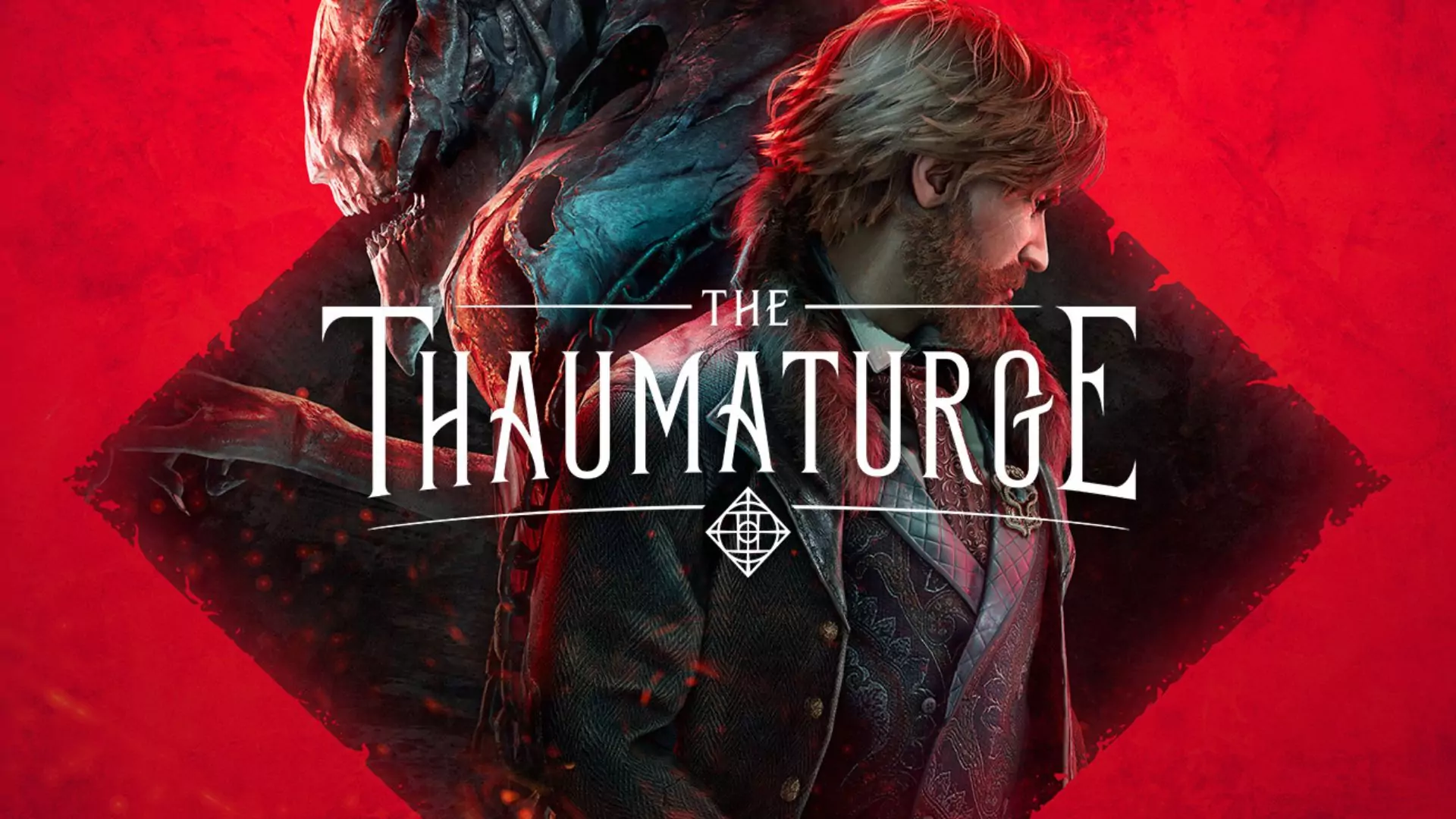
The Thaumaturge: A clumsy experience, but not afraid to take risks
Thaumaturgy in games is a not very exact definition of what it can be: In some games, Thaumaturges are imagined as wizards who can cast spells or in others, people who can manipulate something that resembles magic, like the supernatural for example.
The Thaumaturge uses the second example to offer a well-crafted and very personal narrative. However, there are many obstacles to the experience that are worth evaluating.
Poland, demons and a society on the brink of chaos
The game takes place in Warsaw, Poland, in the year 1905, one of the most important years for the country where the population is facing a strong economic recession and it is more than ever in a state of stress and fear, grasping at any type of solution to ensure their survival.
But the game takes place after the Revolution that happened at the beginning of that year, more precisely in the month of September where political and social conflicts still take place.
In the middle of all this you control Wiktor Szulski, who is initially not in his hometown and faces personal problems, as the player discovers that he is a Thaumaturge and has a pact with a demon, but he can’t talk very well because he has a dejected expression.
This beginning only serves as a tutorial to introduce the gameplay, where the game has decisions to be made that can cause future events to take a different direction.
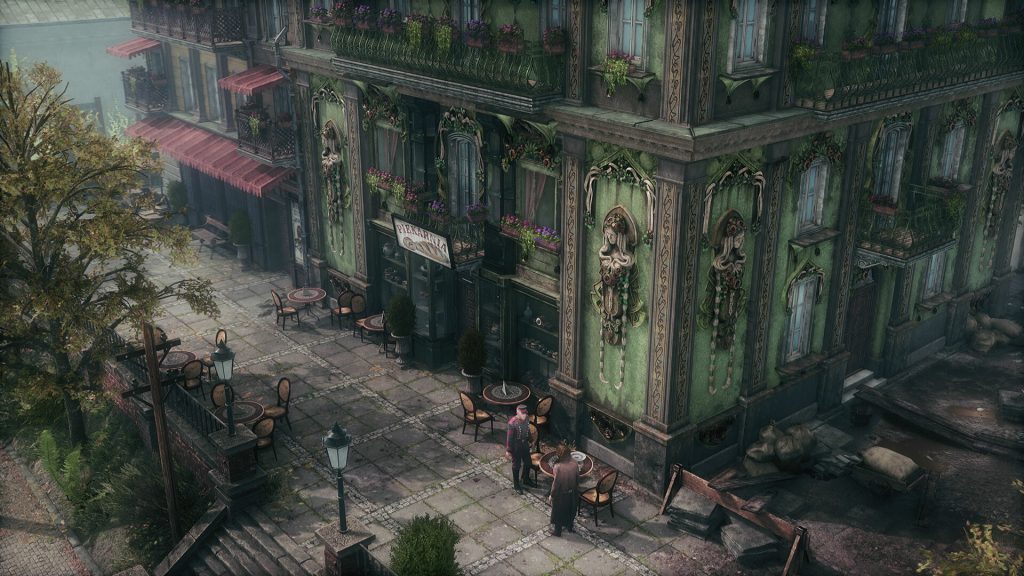
And there are many decisions to be made, where despite some scenarios the decision you make doesn’t have a big difference, others have a deeper impact on the development of the plot. During the tutorial, Wiktor comes into contact with his sister a few times and the player discovers that Wiktor was exiled and cannot return to his city and during the events of the tutorial, he even comes across a well-known historical figure: Grigori Rasputin, who has a important role in the game. And of course, as events unfold, Wiktor will have to return to Warsaw and will be accompanied by his newest acquaintance.
The game portrays Warsaw in a very well-crafted way, although it is only possible to visit a few places. Visually speaking, the game does very well in this regard, where there is a lot of detail in every point of the game. There are also places where the player can view buildings and enjoy the game’s appearance even more.
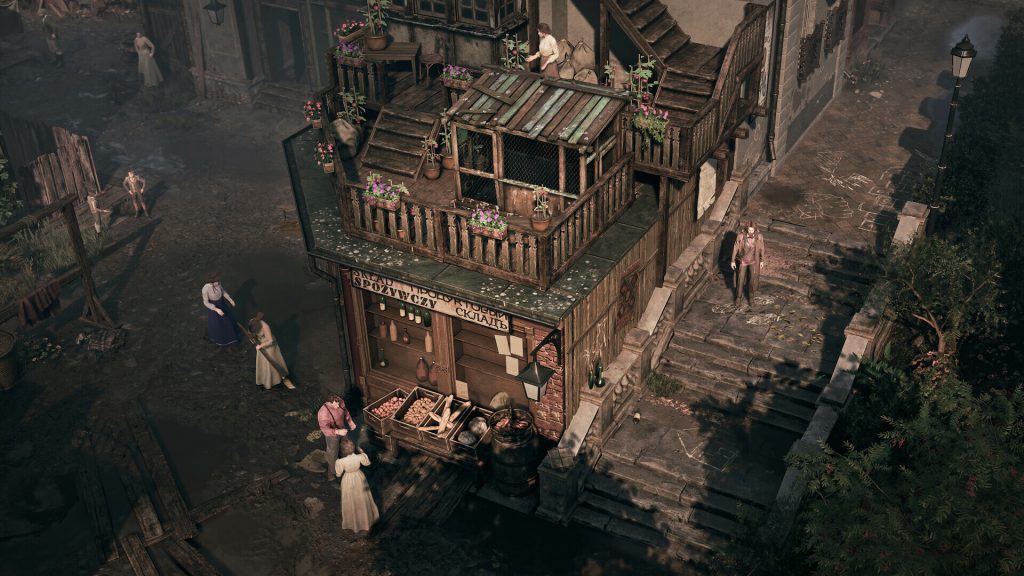
The difference in the game is that Wiktor, being a thaumaturge, can see a phenomenon that occurs in people that the game calls Flaw. This phenomenon is presented in the game as something that can influence only the person holding the mark or also a group of people and that this usually has bad consequences.
Wiktor can remove it from people and it is explained that there can be consequences as to how the person’s attitudes can change for the better or not. Removing it also gives the character some statuses that influence battles.
As for the characters, only the main ones that have a stronger involvement with the main plot have been well taken care in the quality of the models, the rest are normally characters with the same model just changing their hair, clothes or just a beard. This is not what will influence your immersion, but I will comment on that later.
The gameplay of The Thaumaturge consists of the character walking through the streets of the city investigating all types of events that are occurring and to assist the player, there is a type of “sixth sense” to guide the character through the confusing streets.
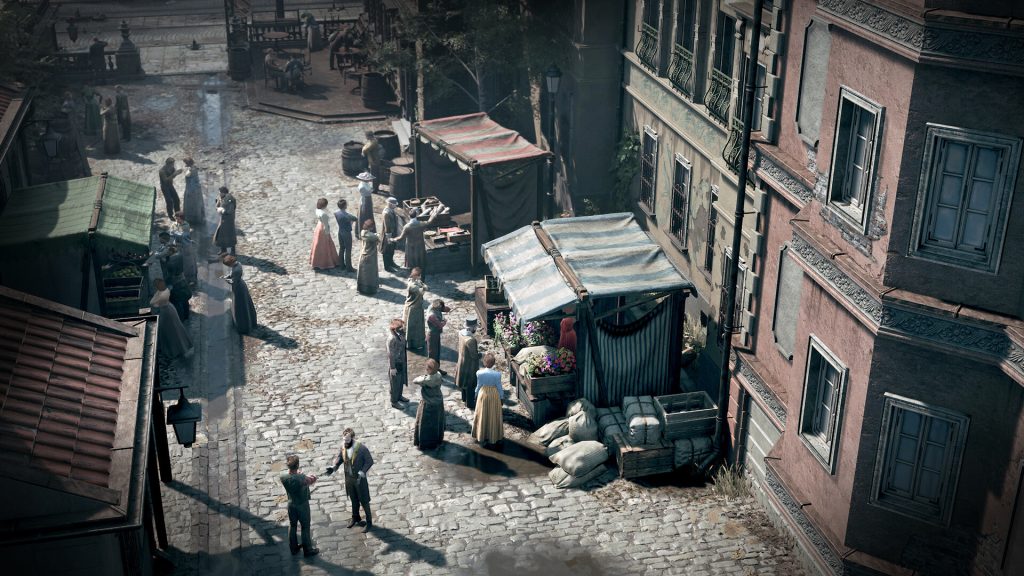
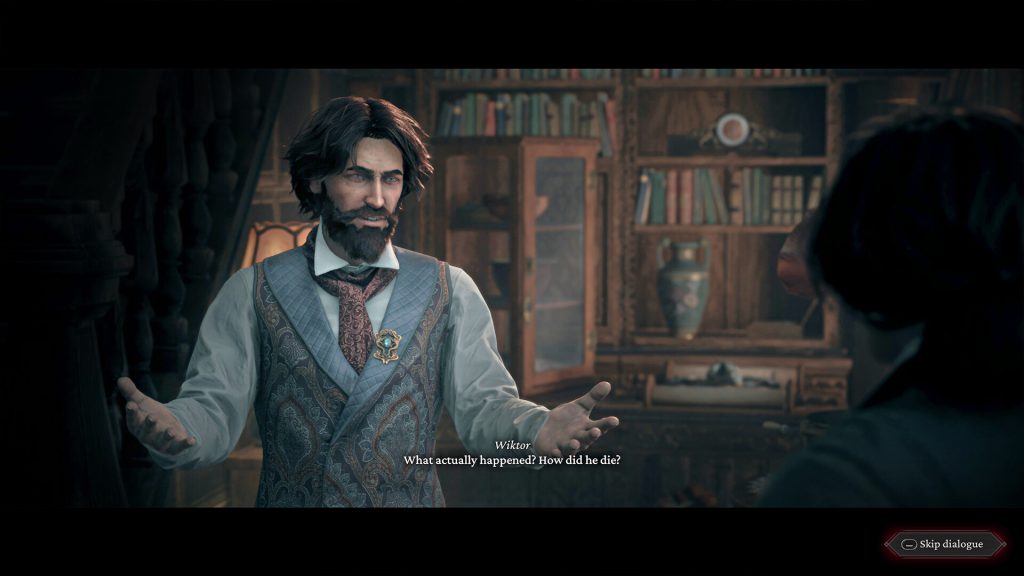
Walk around the streets and investigate
The game’s navigation should have been more thought out, as there are many optional missions where they just say the name of the street, but there is nowhere on the map or in the game that says the names of the streets and the player has to keep using at all times the navigation feature so that the game guides you to the correct location and even so, it has its share of problems.
So navigating the streets is where the investigation part takes place. Wiktor, being a Thaumaturge, has the ability to feel the person’s feelings where they touched the objects left behind and it is an important part of the gameplay where options can be unlocked in important conversations. Most of these options are mandatory for the mission to progress, others are optional but can lead to a different path.
This is nothing new for the genre, but as the plot is something more fantastic and yet human, some decisions can generate a reaction from the player. This part is also important for interacting with spectators if the game is on a live stream, because although some decisions don’t make a difference, there are things that change at the end of the game.
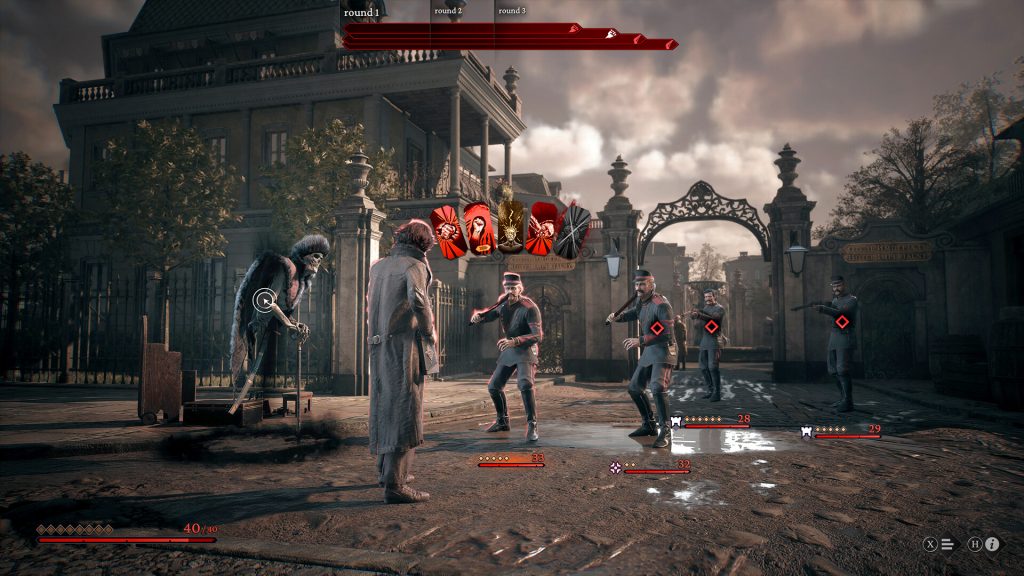
Another part of the gameplay is where the player enters into turn-based combat, where you control the actions of Wiktor and his “salutor”, Upyr. Each action has an amount of damage and how long that action will take to execute. Weak blows are executed soon after the decision and more powerful blows can take much longer.
There are also options to cause buffs or debuffs on enemies to cause different statuses. In addition, there is a “Focus” counter where, if reset, a powerful attack option is available and can be executed in the same turn. But the enemy can also deplete your focus bar and take advantage of the same tactic.
The fights are usually easy if the player fights in all available fights, but there are more challenging fights later in the game, especially if you decide to get all the salutors available. Yes, there are several other demons that can be acquired in The Thaumaturge and each one has a different type, where types are necessary in turn-based fights, as when the complexity of the fights increases, it is soon shown that the enemies have skills that need be broken with a certain type of salutor.
The game does not have a level system, but the player can still collect experience in fights and on the streets by collecting objects or visiting locations marked on the map. This accumulated experience is transformed into points that can be attributed to four types of skills: Heart, Mind, Deed and Word.
Using points in these four skill lines unlocks abilities to be assigned to Wiktor’s attacks, causing a secondary effect and adding an additional layer of strategy in more challenging fights. These skill lines also influence some dialogue options, so if the player does not increase any of the lines, it may be that in some dialogue line some options are locked due to lack of skill.
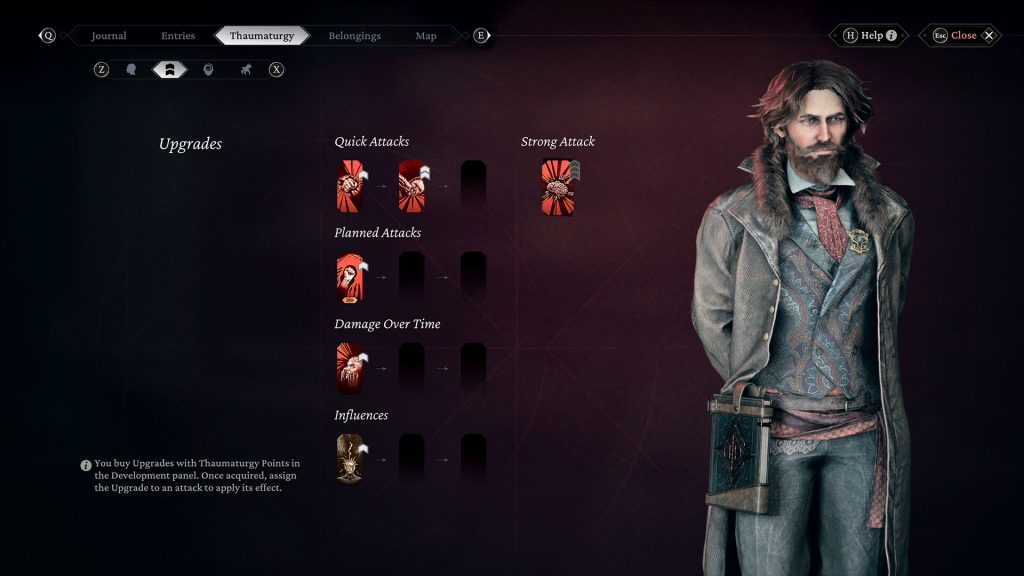
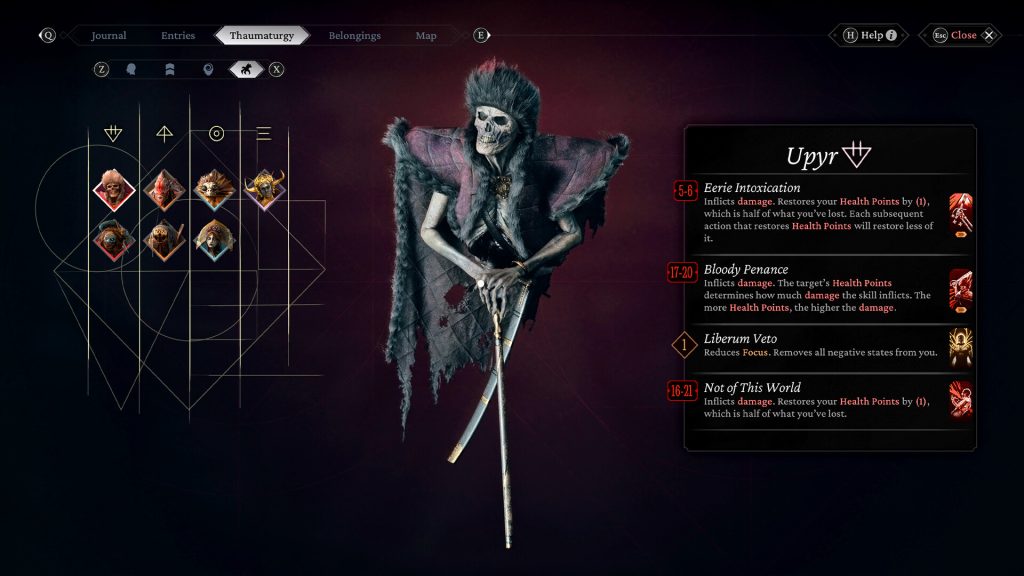
The technical problems in The Thaumaturge are extensive
Having said all that, there are problematic things in the game and they are generally technical things. Technically speaking of the graphics, the game has a very interesting design of clothes, monsters and main characters, but they are hampered by the lack of polishing in the models. It’s not uncommon to be distracted by hair and clothing effects appearing strangely transparent, although some of this problem can be improved using Intel’s XeSS upscaler.
Character animations sometimes break in the game, where you talk to characters and they turn their heads abruptly, eyes blink incessantly and not to mention the NPCs that appear in the background who are sometimes lost and keep spinning without stopping.
There is also a rare problem where the character, after leaving a battle, may get stuck if other NPCs are too close, but it was a rare event and as the game uses autosave a lot, there was not much lost progress.
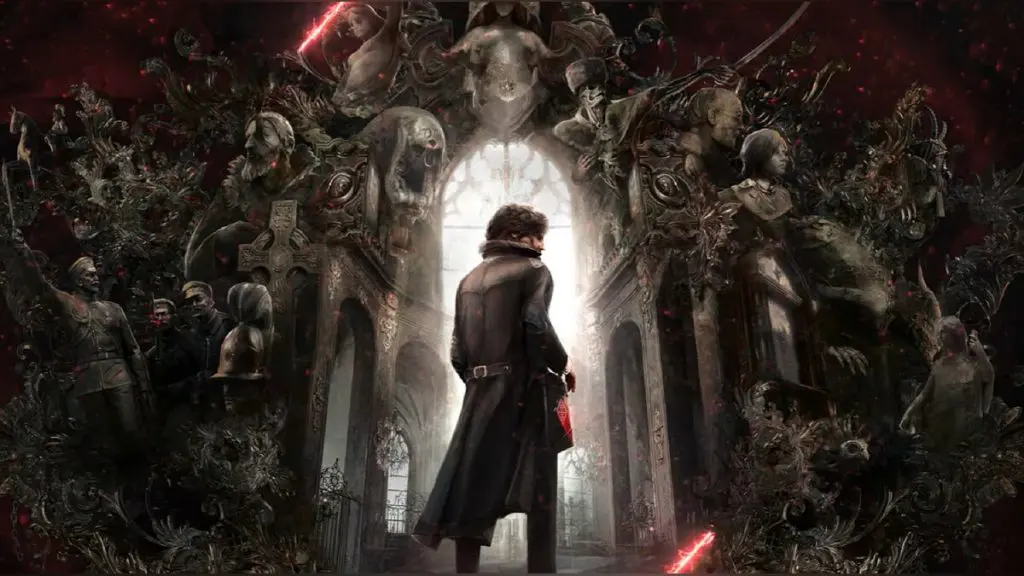
The sound part of the game is very beautiful in its design, with songs that really match the time. Sometimes I found myself humming some songs that were stuck in my head. Unfortunately, in the technical part, the sound part also gives a stumbling block where you don’t hear much of the sounds of attacks as the music is sometimes too loud or the sound of the effects is too low, only at the end and even the last enemies had interaction sounds with the attacks.
But despite all this, The Thaumaturge is not a bad game, on the contrary, it is a very interesting game. I think it’s important to highlight that the game has problems, but the visual problems in the character animations are most of the time comical and sometimes coincide with funny parts of the conversations.
And I say that with the aim of transmitting the game on a live stream, where it can bring a lot of laughs and still attract attention with a more personal plot of the character that even involves historical figures. The game replay can also be extended much longer for those who want to see all the combinations of decisions and endings and provide more content.
Finally, the game needs more polishing as it is not exactly a game with cutting-edge graphics and still has a lot of framerate drops (disable the Lumen option in the graphics).
The Thaumaturge
Summary
The Thaumaturge stumbles but in the end I came away with many positive features that may please many players. Despite everything, it is a recommended experience for those who like games more focused on story and RPG. I hope the studio makes more games with stories that are as good or even better. Of course, taking a little more time to better polish the characters.


